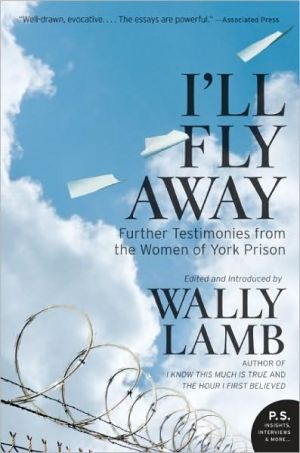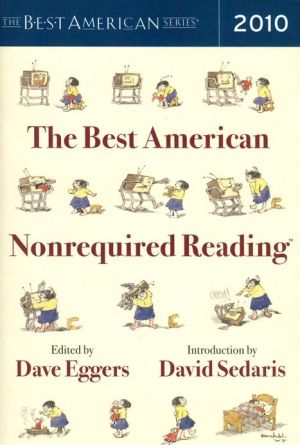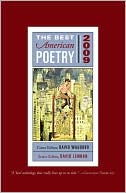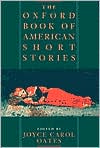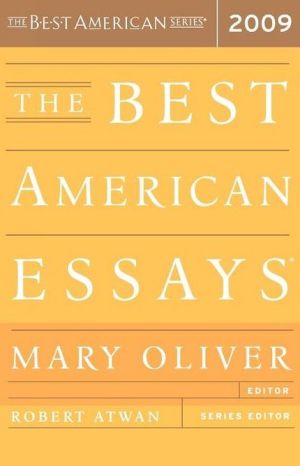I'll Fly Away: Further Testimonies from the Women of York Prison
For several years, Wally Lamb, the author of two of the most beloved novels of our time, has run a writing workshop at the York Correctional Institution, Connecticut's only maximum-security prison for women. Writing, Lamb discovered, was a way for these women to face their fears and failures and begin to imagine better lives. Couldn't Keep It to Myself, a collection of their essays, was published in 2003 to great critical acclaim. With I'll Fly Away, Lamb offers readers a new volume of...
Search in google:
For several years, Wally Lamb, the author of two of the most beloved novels of our time, has run a writing workshop at the York Correctional Institution, Connecticut's only maximum-security prison for women. Writing, Lamb discovered, was a way for these women to face their fears and failures and begin to imagine better lives. Couldn't Keep It to Myself, a collection of their essays, was published in 2003 to great critical acclaim. With I'll Fly Away, Lamb offers readers a new volume of intimate pieces from the York workshop. Startling, heartbreaking, and inspiring, these stories are as varied as the individuals who wrote them, but each illuminates an important core truth: that a life can be altered through self-awareness and the power of the written word.Booklist“Lamb . . . continues to offer readers an intimate look at women struggling to maintain their humanity.”
I'll Fly Away\ Further Testimonies from the Women of York Prison \ Chapter One\ Florida Memories\ By Bonnie Jean Foreshaw\ It's Thursday morning at 6:00 A.M., and we two have just arrived at the open-air flea market, the largest in south Florida. I'm an apprentice shopper and my teacher is my Aunt Mandy. Later this morning, the market will be hot and crowded—alive with music, laughter, gossip, and bartering about the price of everything from necklaces to nectarines. But at the moment, it's cool and quiet. Our focus is fish.\ "Pay close attention to the eyes of the fish," Aunt Mandy instructs as we walk from stall to stall. "If the eyes are clear, not cloudy, and the color of the skin's not fading, then the fish is fresh." Auntie's dressed for shopping in a pink sleeveless blouse, burgundy pedal pushers, Italian sandals, and a white sun visor. I'm wearing shorts, a T-shirt, and rubber flip-flops. I am tall for my age, and starting to get the kind of shape men take a second look at. My glasses take up half my face. "But you have to shop with your finger and your nose, too, not just your eyes," Auntie instructs. "Poke the fish gently near its fin. If it leaves a dent, then you don't want it. If it doesn't, it's probably part of the morning's catch. And listen to me, Jeannie. Fresh fish never smells foul."\ We stop at one of the stalls where the fish are lined up, one against the other, on a bed of ice. The fish man approaches us. He's handsome—black hair, hazel eyes, tank top and cut-off jeans. "May I help you, ma'am?" I watch him take in Aunt Mandy's curves, her green eyes andhoney-colored complexion. I might as well be invisible.\ "Well, maybe you can," Auntie says. "Oh, by the way, I'm Mandy and this is my niece, Jeannie. Now what's your name?"\ "I'm Ricardo," the fish man says. He's sucking in his stomach, and his feet are moving up and down like he's trying to stretch his height. "It's nice to meet you, Mandy."\ "Nice to meet you, too. Now tell me, Ricardo, how much you want for these five yellowtails?"\ "Well, let's see. They're seventy-five cents apiece, so that's a total of . . ."\ He stops to watch Auntie pass her fingers through her shoulder-length hair. It's salt-and-pepper-colored, but Mandy's still got it. "Uh, three seventy-five." "Oh," Auntie says, half-shocked and half-disappointed. "That fellow three stalls down says he's selling his yellowtails for fifty cents each. So unless we can work out a deal . . ."\ The smile drops off of Mr. Ricardo's face, but Auntie's smile returns. Her gold tooth is glimmering. She shifts her weight, puts her hand on her hip.\ "Mandy, it's a deal," Ricardo says. "Five yellowtails for two-fifty. That's a dollar twenty-five cut I'm giving you."\ "Which I appreciate," Auntie says. "And look at it this way: you've just gained yourself a faithful customer. Now, tell me. How much you selling those red snappers for? If I can get them for the same price as the yellowtails, I'll buy some of them, too. And conch."\ I stand there looking from one to the other. Auntie touches the small gold cross at her throat. She fingers her earring. I can tell Mr. Ricardo is only pretending to do the math in his head. "Okay," he finally says. "Sold."\ Auntie pays for the fish and conch, thanks him, and we walk away. A few stalls down from Mr. Ricardo's, she turns to me. "Okay, now," she says. "Show me a fresh fish."\ I go up and down the row, looking each fish in the eye, then pick one up by its tail. I turn it, look at its other eye, study its coloration. When I press my finger against its head, near the fin, there's no indentation. "This one."\ Her look is serious. "You think this fish is fresh?"\ I hesitate. "Yes."\ Aunt Mandy flashes me her gold-toothed smile. "Well, Jeannie, now you know how to pick fresh fish."\ I'm excited to have passed the test, but I've been wondering something. "Auntie?" I say. "I don't remember going to any other fish stalls before we went to Mr. Ricardo's."\ She laughs. "You and I knew that, but Ricardo didn't. It's one of the tricks of the trade when you shop at the flea market. But bear in mind, Ricardo would rather make a sale than not sell. If he has fish left at the end of the day, that's a loss and a waste for him. So we were doing him a favor. Now, come on. Let's cross the street and I'll teach you how to pick out vegetables and fruit."\ We meander among the tomatoes and squashes, the potatoes and mangoes and plums. Shopping for fresh produce is a matter of looking and smelling, but mostly of feeling, Auntie says. "Fruits and vegetables can get damaged by cold weather, the way they're packed, or how far they've traveled to get to the market. If the skin is firm, that means it's fresh. If it's loose, then it isn't. And always check for bruises."\ Although I'm listening to my aunt, it's the peaches in the stall to my right that have my attention. They're big and beautiful, golden yellow with blushes of pink, and their aroma makes my mouth juice up. I'm thinking about how I might get myself one of those peaches.\ "Pick us out some bananas," Auntie says. It's test number two.\ My eyes pass over several bunches before I pick one up. I check each banana, one by one, then walk over to Auntie, who is examining pears. "These are nice, firm, and yellow," I say, handing her the bunch I've chosen. "Tight skin, no bruises."\ She twists the bunch back and forth, then nods her approval. "Good job," she says. Smiling all over myself, I decide to seize the moment. "Auntie, may I get a few peaches?"\ I'll Fly Away\ Further Testimonies from the Women of York Prison. Copyright © by Wally Lamb. Reprinted by permission of HarperCollins Publishers, Inc. All rights reserved. Available now wherever books are sold.
In Remembrance viiAcknowledgments ixRevisions and Corrections Wally Lamb 1When I Was a Child...Florida Memories Bonnie Jean Foreshaw 13Kidnapped! Robin Ledbetter 19Shhh, Don't Tell Deborah Ranger 26In the Mood "Savannah" 37Tinker Bell Brendalis Medina 39One Saturday Morning Chasity C. West 47Gifts My Family Gave MeThe Captain Kathleen Wyatt 57A Brother's Gift Jennifer Rich 63The Rainbow Ring Carmen Ramos 64Pictures of a Daughter, Viewed in Prison Christina MacNaughton 67Under-Where? Lynne M. Friend 68Why I Write Careen Jennings 75Lavender and Vanilla Kimberly Walker 77A Gift Robin Ledbetter 78Broken Dolls and MarionettesBroken Doll Lynda Gardner 85"No" Is Not Just a Word Christina MacNaughton 89Wishes Charissa Willette 92The Marionette Lynne M. Friend 104Falling Robin Ledbetter 114Crime and PunishmentLost and Found Roberta Schwartz 119The Chase Brendalis Medina 151Prom Queen Jennifer Rich 159Down on the Farm Kelly Donnelly 166Big Girl Jail Robin Ledbetter 168Wasted Time Lisa White 176Serpents Robin Ledbetter 177The Lights Are Flickering, Again Susan Budlong Cole 179Just Another Death Christina MacNaughton 182I'll Fly AwayMy Three Fates Chasity C. West 191Dance of the Willow Kelly Donnelly 202I Won't Burn Alone Brendalis Medina 203Seasons' Rhythms Kelly Donnelly 211Flight of the Bumblebee Kathleen Wyatt 213Reawakening Through Nature: A Prison Reflection Barbara Parsons 215Contributors 241Facilitators' Biographical Statements 253
\ From Barnes & NobleIn 1998, Wally Lamb began teaching writing to female convicts at Connecticut's York Correctional Institute. It was not for lack of a résumé; he was already an acclaimed novelist (I Know This Much Is True; She's Come Undone) and had been teaching high school for a quarter century. York was something different. After adjusting to his new constituency, Lamb realized that his students had disarming, often frightening stories to tell. In 2003, he published an anthology of these testimonies, the PEN/Newman's Own First Amendment Award-winning Couldn't Keep It to Myself. This follow-up collection is just as bracing and profound.\ \ \ \ \ Booklist"Lamb . . . continues to offer readers an intimate look at women struggling to maintain their humanity."\ \ \ Library JournalNovelist Lamb's (I Know This Much Is True) second collection of writing by the students in his writing workshop at the maximum-security York Correctional Institution in Connecticut, after Couldn't Keep It to Myself(2003), also focuses on the inspiring and raw emotions of women sharing the good and bad memories that shaped them. The 20 women whose work is featured here-18 inmates and two of Lamb's cofacilitators-show that writing is not just a way of capturing their most private thoughts and gripping emotions (e.g., hope, despair, courage), but also a powerful tool to foster hope and healing. They write from the heart in works ranging from poems to essays to short stories; each vignette is more compelling than the one before it. Highly recommended for academic and public libraries.\ —Susan McClellan\ \ \ \ \ \ Kirkus ReviewsThe second accomplished collection of writings from women incarcerated in Connecticut's York Correctional Institution, edited again by bestselling novelist Lamb (Couldn't Keep It to Myself: Testimonies from Our Imprisoned Sisters, 2003, etc.). One would have thought the first volume, with its probing examinations of lives run amok, would have convinced prison authorities of the value of a writing program in which prisoners focus and take account. But the prison bureaucracy tried to shut it down, writes an incredulous and furious Lamb, and they confiscated the prisoners' material. That particular draconian administration was replaced with a more enlightened group, Lamb reports, one that allowed for the rehabilitative value of writing. These works radiate what Lamb saw as the program's critical mission: to give the women wings "to hover above the confounding maze of their lives, and from that perspective . . . to see the patterns and dead ends of their past, and a way out." Some of the stories are rueful, others bitter, but all bite, even-perhaps especially-when they are gentle. None are self-pitying, but none shy away from speaking directly to the gross cruelties so often inflicted on their early years or young marriages. Each story, no matter how grim or gritty, shows polish, and the women display a wide array of emotions: unbridled anger, innocence, hope, resigned acceptance. While a few of the stories speak of angels who touched the women's lives, most display open wounds that are continuing to be healed by the cathartic power of words. Writing as an act of self-realization and liberation and, not incidentally, an indictment of the penal system.\ \
